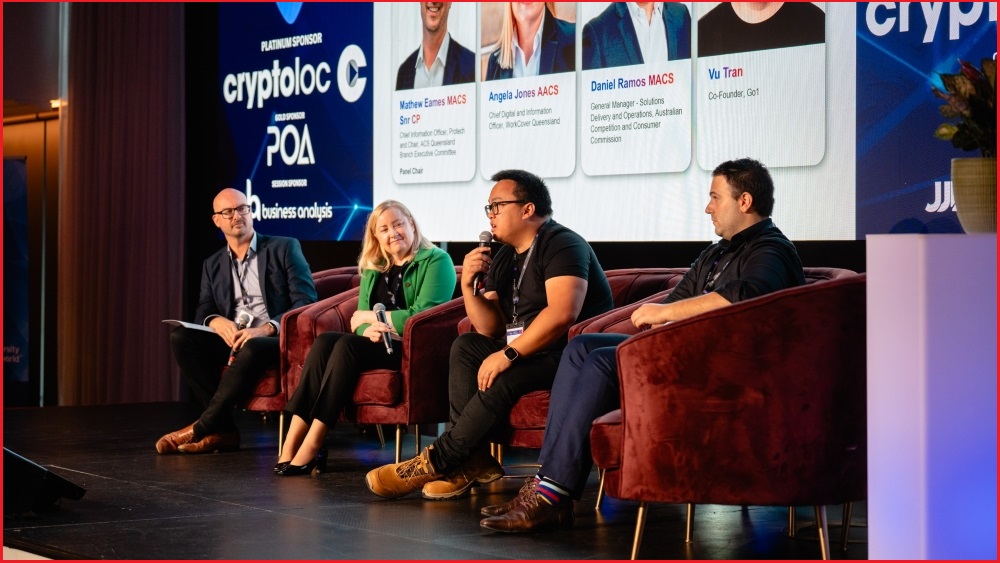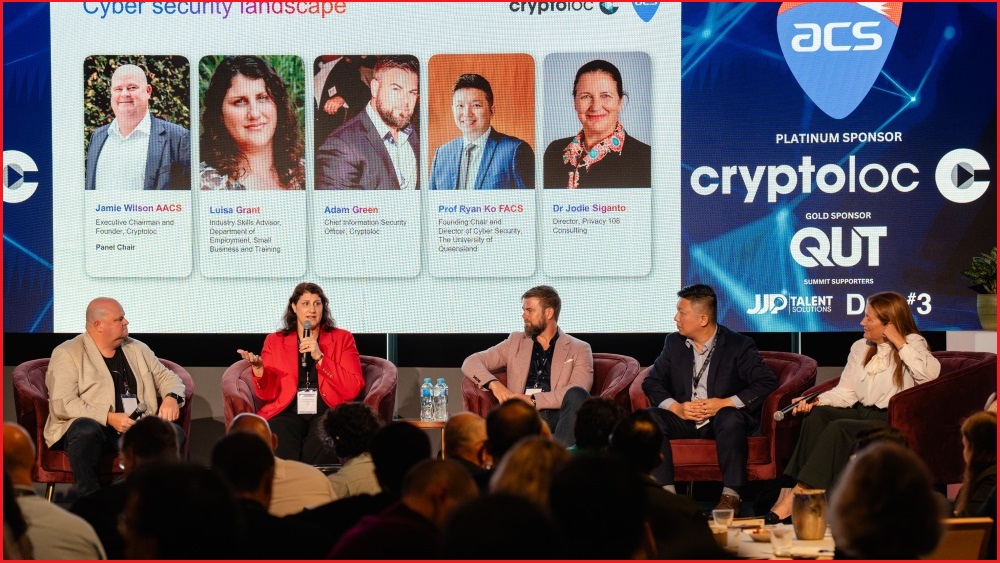Leaders from Australia’s technology industry have emphasised the need to hire workers based on their character, rather than focusing on their qualifications.
A panel conversation at the annual ACS Tech Summit in Brisbane last Friday focused on how to build stronger tech teams by recruiting people who are the right fit for a business and its culture, even if they may need extra training.
Angela Jones, Chief Digital Information Officer at WorkCover Queensland, said that while she recruited for people who “know their craft”, she also “more importantly” recruited people who were inclusive and possessed the right character.
“If someone doesn't know their craft, but has the ability, then have a career pathway and set them up for success,” she said.
“… They can learn a way of working, they're flexible people, they've got high emotional intelligence, they'll adjust to the environment, but equally they'll know the behaviors and practices that are really fundamental to working with others and delivering outcomes and goals.
“Wearing my leadership hat, I have to create the environment for them to succeed.
“So you've got to be ready to embrace the talent. It's the simple disciplines of strategic planning, and stitching that all the way through to delivery and getting ahead of delivery.
“Because if people don't have a future and a roadmap, then they can't be high performing.”
Daniel Ramos from the Consumer Data Right Division at the Australian Competition and Consumer Commission (ACCC) told the summit to avoid “recruiting in your own image”.
"It can be very tempting, whether it's conscious or unconscious bias, to recruit people like you,” he said.
“And even if you think you're pretty great, I think that there's value in diversity, and there's strength in building teams that are complementary.
“In other words, people who have different life experiences and different perspectives, they can bring that to a team environment.”
Ramos warned that recruiting people with “totally incompatible” world views could still be fraught, if there was not “a culture of respectful challenge, a culture of trust and safety where they can be themselves” in the workplace.

Tech leaders discuss 'building brilliant tech teams' at the 2024 ACS Tech Summit in Brisbane. Photo: Tomo Okai / ACS
Unexpected workers move to cyber security
Cyber security experts told the summit they had seen people joining their industry from wildly different areas of Australia’s economy, because they were interested in the topic and open to learning new skills.
Adam Green, Chief Information Security Officer at Queensland cyber security company Cryptoloc, said in a previous role he found some of his best workers when he "looked outside the cyber security industry”.
"One came to us as a bartender, but had an aptitude for breaking stuff — other than glasses,” he said.
“Another was a nurse, a male nurse, and we thought, ‘Hang on, we can apply your thinking. You've got a great understanding of medical devices and the operations of a health network.’
“And then we got a guy who was a plumber … He had a major interest in making a difference.
“The common thread across anybody who has come from outside the technology or cyber security industry that's come in and been really successful, is actually interest in cyber security.
“When I look at resumés, I don't go, ‘What certification do you have? How many Cisco courses have you attended?’
“The first question I ask is, ‘What is it that excites you about cyber security? And tell me your favorite cyber security story.’
“Then that passion shows through, and that person is trainable. That person can then have a skill migration, because they actually want to learn it, rather than ‘it's just a job.’”

Tech leaders discuss the changing cyber security landscape at the 2024 ACS Tech Summit in Brisbane. Photo: Tomo Okai / ACS
Building strong teams and culture
Panellists agreed that building high-performing tech teams meant developing a welcoming culture which delivered a positive experience throughout recruitment, onboarding and training processes.
Jones told the summit that individuals learn differently, and it was important to involve them in deciding how to design their path forward.
“The area I spend the most time is on professional development, but I'd make that individual do the thinking and bring it to me, and I help shape it. I don't do it for them.
“It's being very flexible and open to different ways of achieving those outcomes.”
The panellists also agreed that maintaining strong teams and workplace culture was often the most difficult thing.
Vu Tran, co-founder of online learning startup Go1, said he had not yet figured out how to develop a high-performing team, and admitted it was “really, really difficult” to achieve.
“In fact, more often than not, I will lead underperforming teams than high-performing teams. That's just me being honest and frank,” he said.
“It's incredibly challenging, because we're in a world that is getting more difficult — it feels like for me — by the day.
“… People have personal pressures that are growing by the day, the cost of living challenges with housing, all these different things that you read about in the news.
“So just getting a performing team, let alone a high-performing team, at least to me personally, is friggin’ hard and really, really difficult.”
Tran emphasised the importance of “the human element” of learning in person, despite it seeming counterintuitive for someone with an e-learning business.
“I think the art of being able to mentor, coach and guide humans — one on one, or one to many — is actually going to be more important than ever before,” he said.
“It's going to differentiate between doing an online course, getting the tick or learning a skill, versus being able to apply it and actually deeply understand it.”










